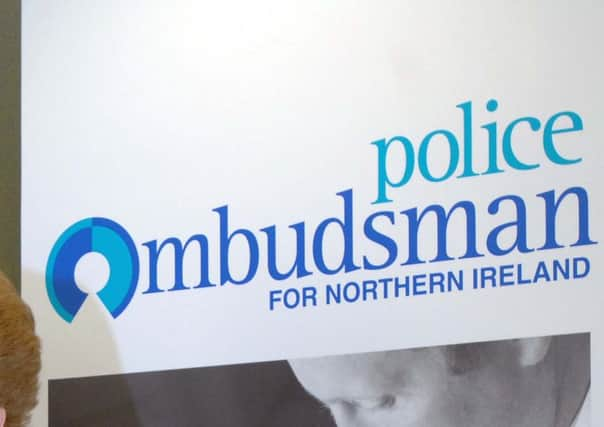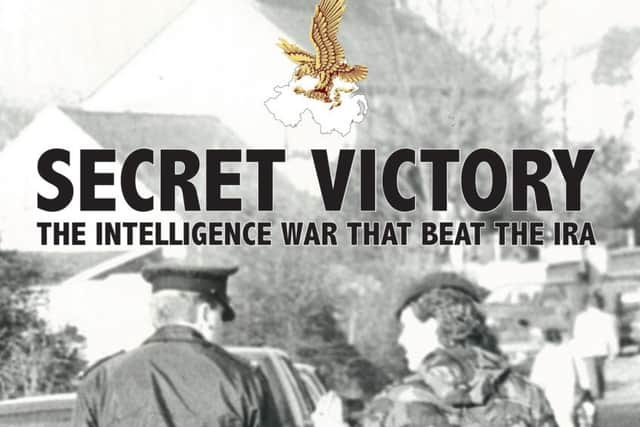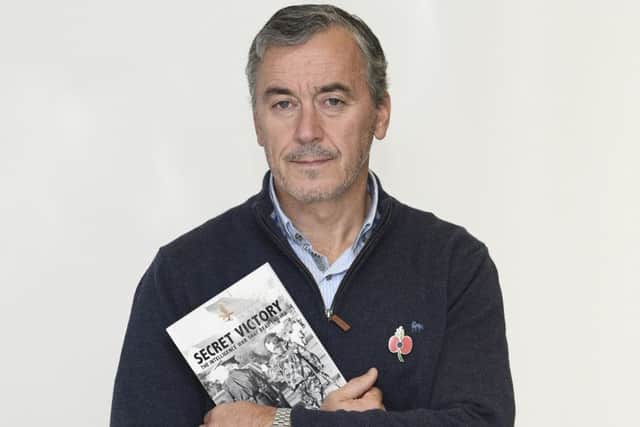Secret war against IRA: Main body progressing '˜collusion' is the police ombudsman


The Stevens investigation [of 1989] showed the shortcoming of two separate intelligence agencies – FRU and SB. It is a valid point.
A review into the murder by Desmond de Silva in 2012 shows confusion between the two worked against protecting Patrick Finucane.
Advertisement
Hide AdAdvertisement
Hide AdIt was not ideal, but in an irregular war nothing is. There are no failsafe systems. But the system saved more lives than the alternatives.


No conflict since has implemented the type of Threat to Life policy the police is criticised for not having. Much as people like Stevens have tried to impress, the Troubles was not a peacetime context. As with Stalker, Stevens did not provoke a scene change. SB stayed in the hot seat.
None of this is any comfort to the Finucane family. Patrick Finucane was an innocent Catholic callously cut down. Tragically, the preventative option put in place (which regularly worked previously) failed. It was not a case of turning a blind eye, unlawfully conspiring or SB playing God, but an honest failing. If the Finucane family ever get a chance to talk to the SB detectives involved they might realise this. SB were trying to protect Patrick Finucane not kill him.
‘Collusion’ would be the blame game’s centrepiece once peace was agreed. The abstract nature of intelligence is a politically rich target, a way to help prevent republicanism from splitting. Redundant Provos in suits were put to work on a ‘collusion’ campaign guaranteed to play out favourably in the courts and media.
Advertisement
Hide AdAdvertisement
Hide AdStevens, fortuitously, happened in the transition from conflict to peace. Raising the spectre of a ‘dirty war’, as Stevens did, was not inconvenient for the British side. Pandering to the Provos suited, particularly as this was when the British were running down the intelligence effort to give Sinn Féin breathing room.


The insurgent leadership persuaded a new Prime Minister that the police and its SB needed disbanded, a longstanding political demand of nationalist leaders. This, effectively, occurred through the Patten Report (1999).
The report used Stalker’s ‘force within a force’ line to describe SB, an early indication of things to come. The police became a sacrificial pawn of the peace. It was the other side of the ‘peace process’ coin that portrayed the Provos as peacemakers.
The RUC being reconstituted as the PSNI in 2001 left many officers feeling betrayed. Critics point out that they received a generous early retirement scheme. SB detectives, however, traditionally worked beyond the 30 year retirement threshold. Retiring early was not financially attractive, particularly for the lower ranks.
Advertisement
Hide AdAdvertisement
Hide AdMost SB officers took it because they were sick of the celebratory manner of Prime Minister Blair, his ministers and spin-doctors with unrepentant insurgent leaders. They no longer felt valued. Sinn Féin portrayed those that remained as the ‘dark side,’ an impediment to a new beginning in policing. But to secure the peace the policing change was politically pragmatic. There is a perverse irony about prisoners released early and included in the ‘peace process’ and police retired early and excluded.


What escaped most people’s notice, especially unionist leaders, was that republicans and nationalists wanted a new police ombudsman with retrospective legal powers. For a retributive republican movement, replacing the RUC with the PSNI cleared the way for giving the RUC a hammering. Undermining the rule of law did not end with the Belfast Agreement. The republican strategy was about continuity rather than change.
Retrospective investigations
Retrospective investigations into the police would be the cornerstone of republican revisionism. Sinn Féin did not need to re-write history – they would get the state to do it for them.
Nationalist leaders, local NGOs and others similarly disposed toward the RUC supported Sinn Féin’s ‘collusion’ charter. For them this is what a ‘peace process’ looks like – SB acted with impunity and must be held to account.


Advertisement
Hide AdAdvertisement
Hide AdThere was nothing similar for the IRA (or loyalist terrorists). Equality, enshrined in the Belfast Agreement, did not extend to police. The main statute body progressing ‘collusion’ is the police ombudsman.
Nationalist expectations have not been disappointed.
• In ‘Secret Victory: The Intelligence War That Beat The IRA’ former Special Branch detective William Matchett gives an insider’s account of the ‘secret war’ that brought committed terrorists to the negotiating table.